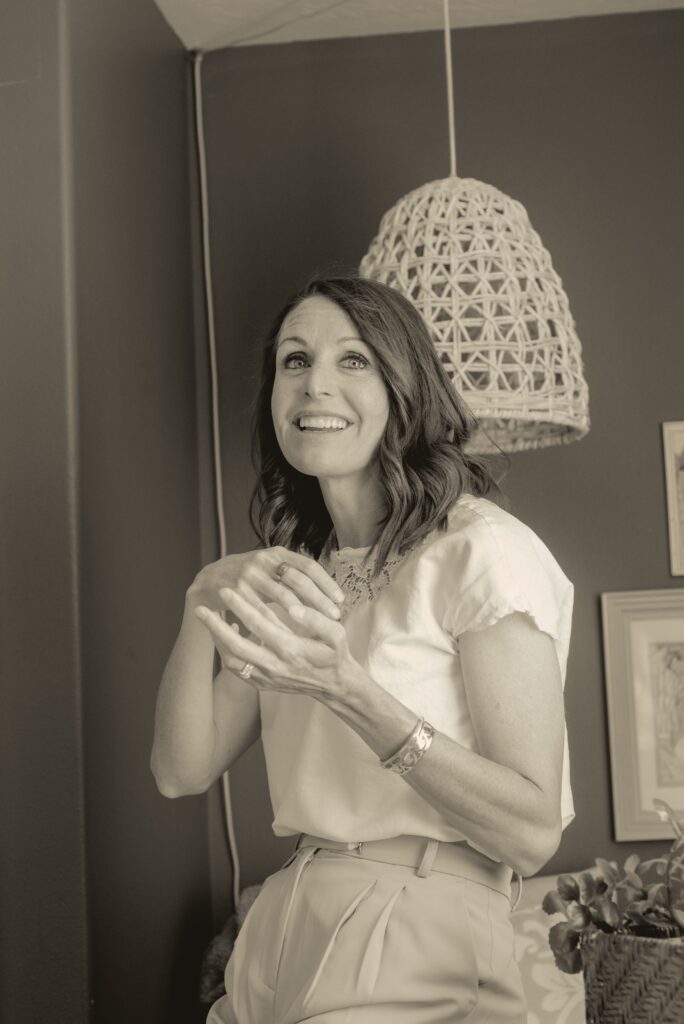PMS: The Reoccurring Cycle
Roots and Truth
January 14, 2025
I had a conversation with my husband the other night, that was thought provoking, and invited curiosity.
He asked me if I could enter the last week of my menstrual cycle prepared to sit down and watch movies with my children? Could I make this week period of time a time for cuddling and connection rather than creating distance and confusion in my relationships with my children?
The Reality of My Cycle
My experience goes far beyond typical PMS. As I progress through the month, inflammation builds in my abdomen and chronic pain intensifies. My mental clarity deteriorates, digestion becomes difficult, and my skin crawls—disrupting my sleep. This accumulating fatigue makes it increasingly challenging to balance self-care with parenting.
The Stories I Tell Myself
For years, I’ve carried beliefs about why I can’t rest during that final week:
If I rest…
Who will feed the kids?
How will all the dishes get done?
Who will cook a meal? (I try to eat whole foods, which involves cooking almost everyday.)
Who will drive to soccer games and baseball practices?
I’m a mother who never watches tv. I’m constantly active with my three-year-old, helping with potty breaks and building living room obstacle courses. When I’m not directly caring for her, I’m meal prepping. I practice daily yoga, and I spend hours researching my illness, trying to understand why my body struggles as it does.
Learning to Adapt
It has been helpful for me to label that I am a busy body mom.
My brain is not very organized. A lot of this stems from the way I began to mentally over process in childhood.
I also realized (about two years ago) that I wasn’t eating enough calories, because I was trying to eat so healthy to heal my body.
I desire to recognize this and fuel my body with more dense calories during the last week of my cycle. The comfort foods that have additional calories include:
- Grass-fed beef
- Whole milk (after all that chatter about how milk created inflamation)
- Cream cheese
- A moderate amount of Ice Cream
- Hearty meals with mashed potatoes and roast beef
Another part of our adaptation evolution was incorporating the insight that I received from this TEDx Talk, Your Menstrual Cycle is Your Super Power, Dinara Mukh, explaining the menstrual cycle use the metaphor of the four seasons. This opened my eyes and allowed insights into what was happening inside of my body. It gave my husband and I shared language—we now call this challenging phase “Fall.” While it’s not our favorite season, we acknowledge that entering it is inevitable.
When I’m in the “Fall” season of my cycle I increase my epsom salt baths and spend extra time in the mornings in bed.
Finding a New Perspective
He asked me if I could enter the last week of my menstrual cycle prepared to sit down and watch movies with my children? Could I make this week period of time a time for cuddling and connection rather than creating distance and confusion in the relationships with my children?
Initially, my husband’s question triggered defensiveness: Who would handle all the responsibilities? But then something softened within me, revealing new possibilities:
Weston deeply needs physical touch—it’s his love language, yet our snuggle time rarely happens. And Scott, at twelve, possesses incredible energy and efficiency. Fifteen minutes of his help accomplishes what takes me hours alone. By inviting his collaboration rather than staying in defensive mode, could we possibly transform our household dynamic?
A New Approach
The last two months, on the 29th day of the month, I have had intense painful attacks. I have a morning filled with anxiety and nerve pain. My digestion has been sluggish and my pain has created too much stimulus!!
I created a sign for Curtis, reminding him that it’s that time in the cycle. It reminds him that my response is not his fault. But I am not going to be a great parent right now either.
I have paused to make myself a meal. Fueling up is best, so low blood sugar doesn’t create more cortisol in my body. And then I lay on my couch to rest. Or I go outside to discharge the energy that the anxiety created that morning. Morning walks are discharge walks sometimes.
The cool air brings always brings me back into my body. I have learned to embrace the cool air in the winter time.
I communicate with the kids, “Today and this week I am going to need extra time to breath, stretch and watch tv. Who has a show that they’ve been wanting to watch with me?”
I try to keep a notebook by the sectional in our living room. I make of list of jobs that Scott can do. Start the laundry. Pull cooked roast out of the freezer. The message is clear. I can’t cook for you, but meals are prepared. They need to be pulled from the freezer and reheated!
I take magnesium throughout the day to stabilize myself as I flow through all that is happening..
Finding Deeper Meaning
At bedtime I pray that my body will be able to heal this wound. The fall season of my cycle is where I have the most vivid-insightful dreams. Sleep doesn’t have to be perfect for me, because the time in the dark night allows for the deepest questions of the heart to reveal themselves.
I often wonder why I continue to bleed. I know women my age that have had hysterectomies, and no longer bleed monthly.
It’s a mystery to me why my body reacts so strongly during the luteal phase of my menstrual cycle. I know that I’m not alone. My body has displayed symptoms consistent to those of PMDD (Premenstrual Dysphoric Disorder)
(For other women experiencing similar shutdown symptoms, I recommend reading:)
While I believe living under a diagnosis can be limiting, naming our experiences validates them and deepens understanding. Understanding the extreme symptoms of PMDD have created an awareness around the choices that I make during my luteal phase. Tracking my cycle has given my husband and me crucial awareness for navigating difficult days.
Instead of being naive to what is happening, I believe that as we acknowledge our pain, we open ourselves to a more fulfilling life.

Moving Forward With Compassion
My husband’s simple question about watching movies with our children opened a door to deeper understanding. While my menstrual challenges remain intense, his question has caused an internal pause, and has opened up different possibilities for connection. Instead of fighting against my body’s natural rhythm, I’m learning to flow with it—creating space for both healing and family bonds.
This journey has taught me that vulnerability isn’t weakness. By sharing my struggles openly with my family, I’ve discovered unexpected sources of support. Scott’s efficiency, Weston’s need for cuddles, and Curtis’s understanding are all a part of of my family support system. The question is, will I be able to communicate to them when the metal and physical struggle returns.
Perhaps the greatest lesson while mentally handling this dilemma is accepting my limitations. And sometimes it means finding a different way to show up. Whether it’s through movie nights, gentle walks, or delegated tasks, I will strive to maintain connection even during a challenging season. While I’m adapting, I’m not just managing my symptoms—I’m modeling for my children that self-care and family care can coexist.
Final Notes
The fall season of my menstrual cycle has been a real challenge for me. The absence of mental clarity is the most tricky thing during my luteal phase. It is important that during this week, I don’t make decisions that will impact my life greatly. Those decisions need to be reviewed and decided after menstruation.
Have you experienced strong swings in the fourth week of your menstrual cycle? If so how has that week impacted your relationships?

Hi, I’m Cami
Eight years ago I started writing my story down in a cheap, single-subject notebook. I wrote everyday for weeks, my story came spewing out of my pen, on the page.
I not only wrote about all of the bleak days, and what it was like to suffer from in a body that was fatigued and in pain, I wrote about miracles that were being sent to me. I continue to write those stories. I love recognizing how the universe is showing me that I am not alone, through signs and wonderful people. I hope that you can have these experiences of your own if you are seeking for answers of your own.
I believe that those who seek will find. Those you ask will have their questions answered in time.

Leave a Reply Cancel reply
© roots and truth | All rights reserved | Site design by linsey rhyne co.